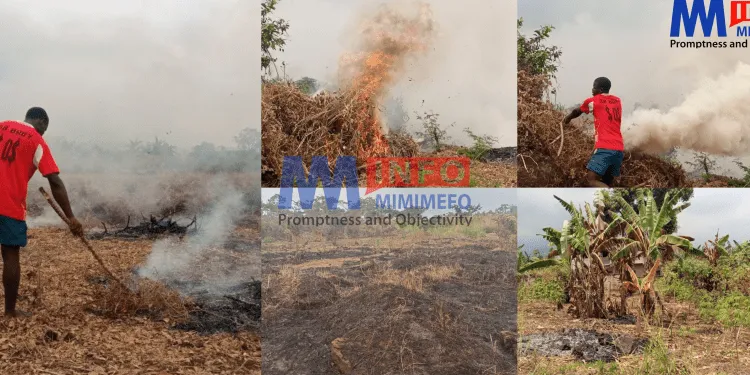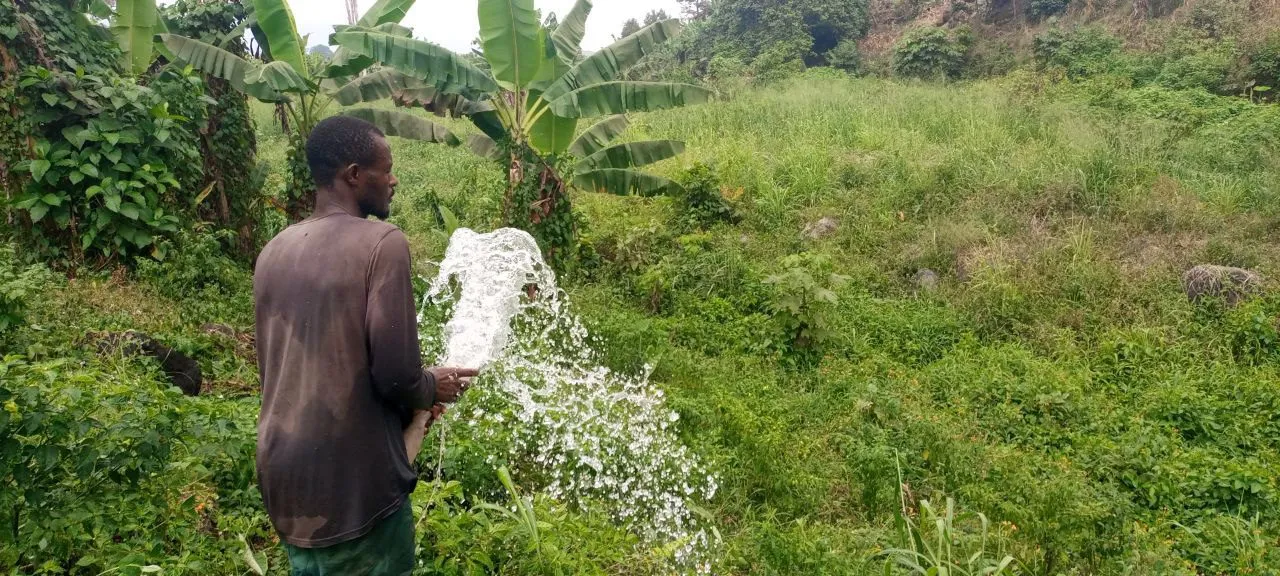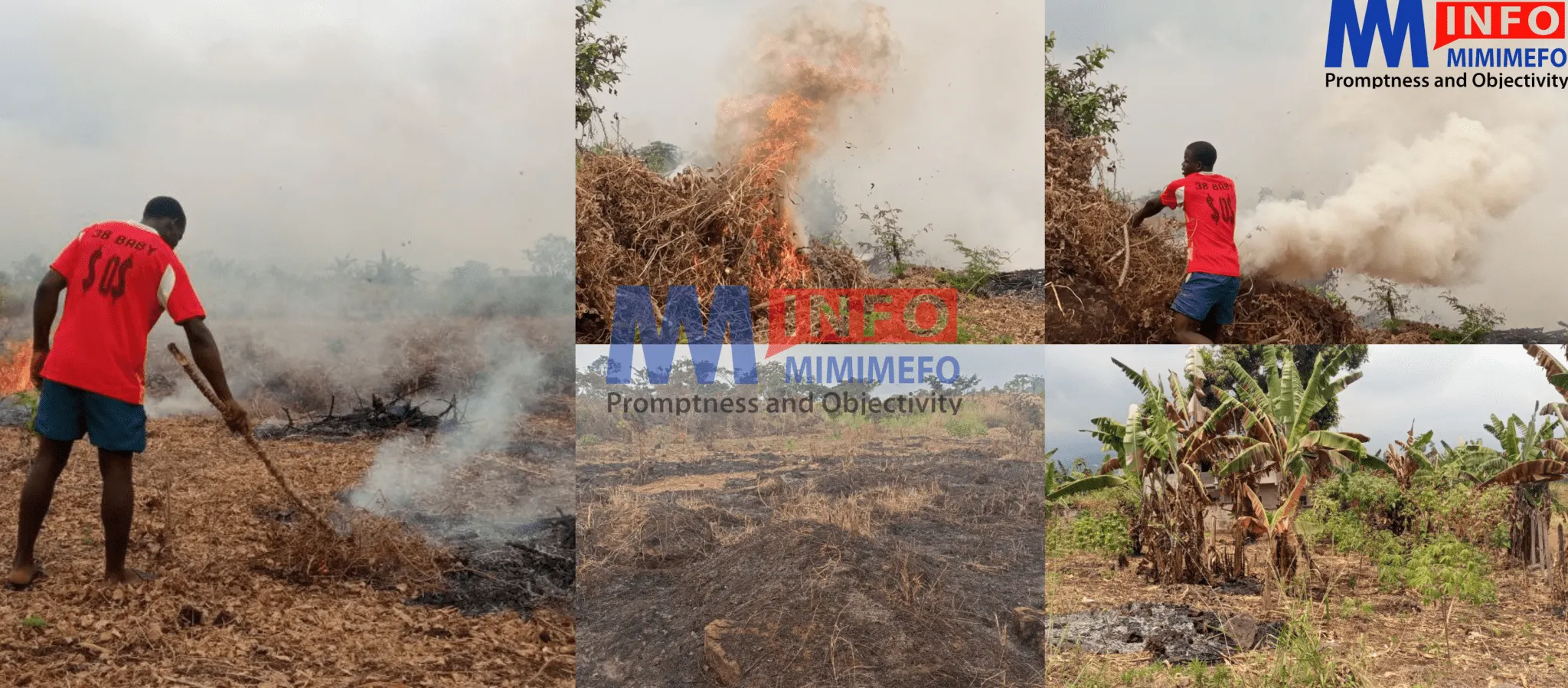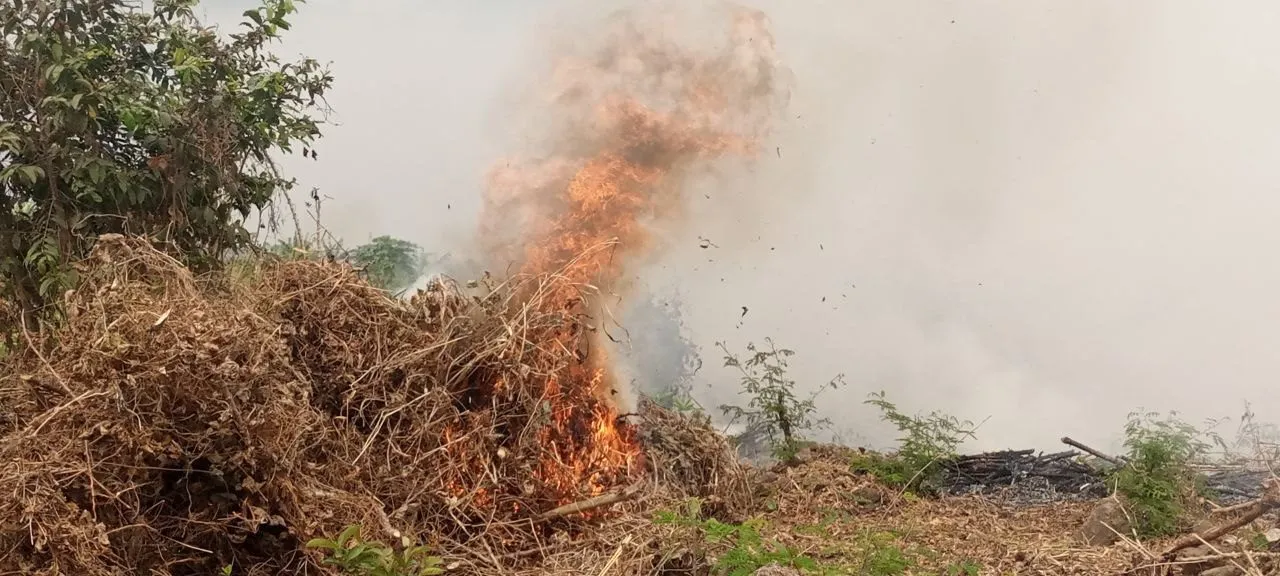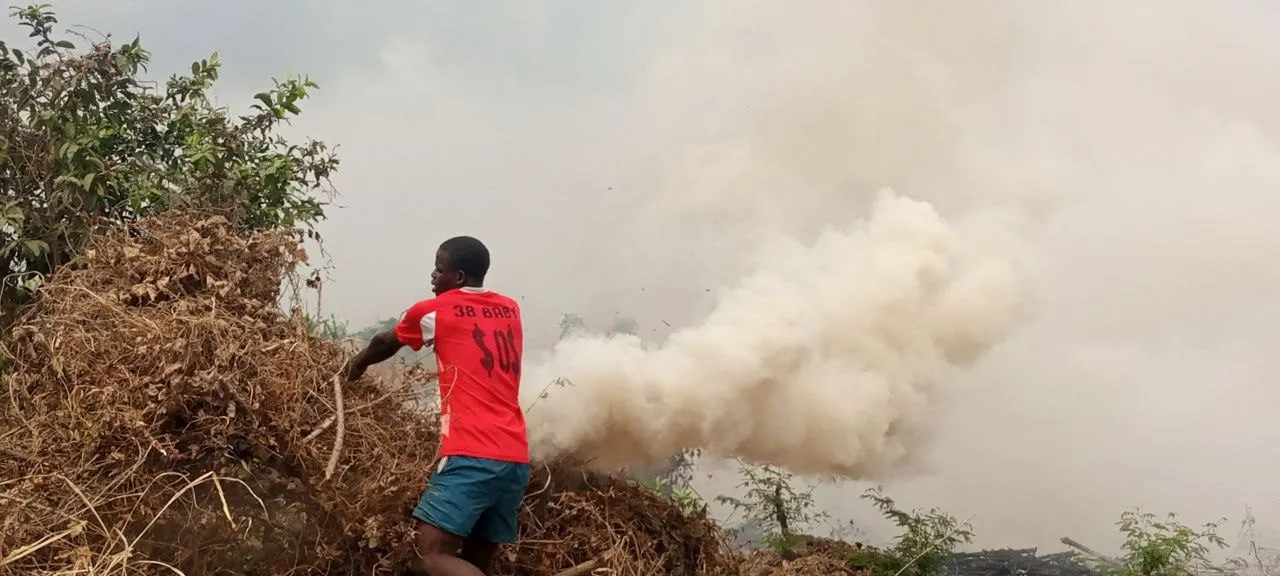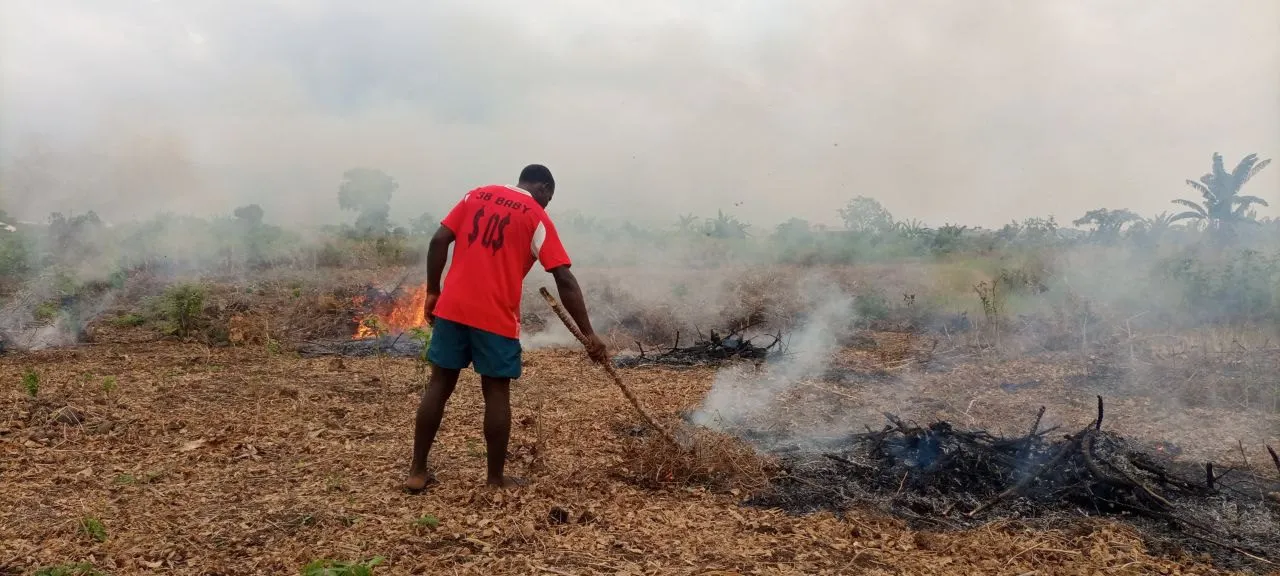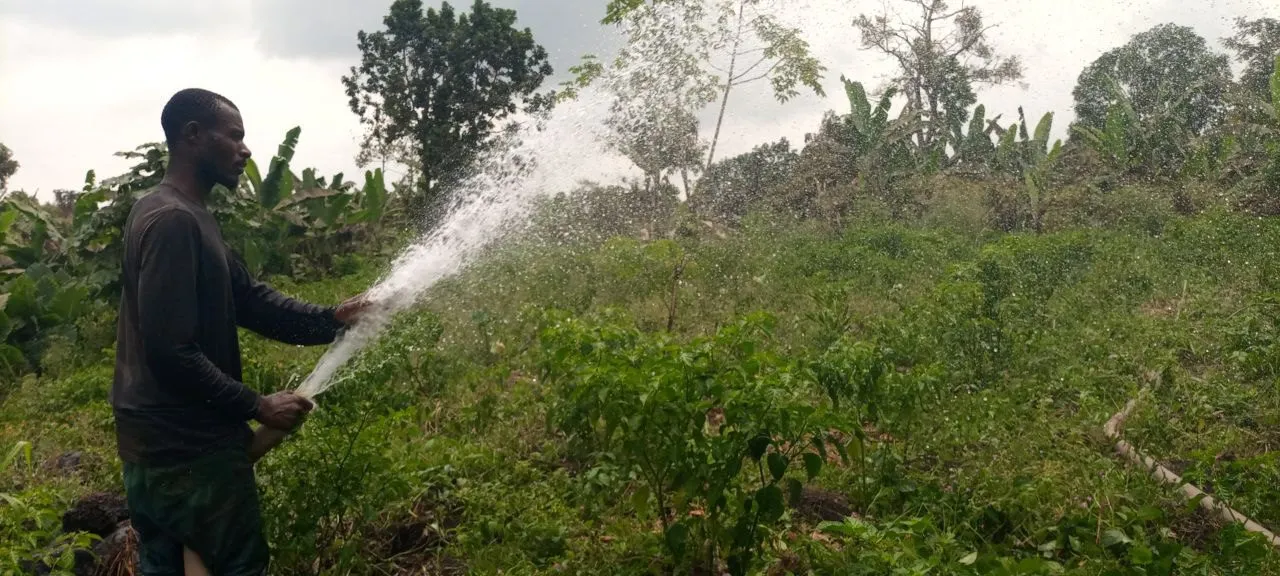The imminent rainy season in Cameroon is prompting farmers to resort to questionable practices, particularly the widespread burning of ‘Ankara’, raising concerns about the farmers’ awareness of climate change and environmental pollution.
The sun beats down on Desmond Mawai’s family farm as he sets fire to a pile of cleared grasses. The flames lick at the edges of cassava and guava trees, charring them in their wake. Desmond knows this isn’t ideal. “I could bury the grass and let it decay,” he admits, “but the rainy season is coming soon, and if I wait, we won’t plant in time.”
“The rainy season is fast approaching, and if I wait, we will not plant because of the grass,” explains 22-year-old Desmond Mawai in the village of Bulu, located on the outskirts of Buea. The smoke from the flames not only blankets the Bulu area’s sky, affecting the ozone layer but also takes a toll on Desmond’s health as he struggles to cough and his eyes turn red.
While burning is a prevalent practice, not all farmers adopt this method. Mama Josephine, a 42-year-old farmer with decades of experience in Buea, tailors her approach based on the crops she intends to plant. She burns grass for some crops, such as egusi, which benefits from Ankara burning’s manure, but opts to bury the grass for corn. However, the unpredictable weather patterns leave her anxious about the optimal time for planting.
“Now we don’t know when the rain will come. We are just praying to God. But when the first rain comes, I will not plant because the sun will shine after that. Crops planted during that period are likely not to do well,” she said while returning from her farm at 2 p.m., complaining that the heavy sun drove her away.
Ankara Farming System and Soil Fertility Concerns:
The Ankara burning practice remains widespread among Cameroonian rural farmers who believe it enhances soil fertility. However, this method is not only environmentally destructive but also poses health risks. Environmental ambassador Audrey Njonwi Sanda, addressed a letter to the mayor of Bamenda III in which he decried that the burning of grass and ‘Ankara’ were “very destructive to the fertility of the soil and the ozone layer” in the municipality. In his complaint, he urged the mayor to ban such a practice and start punishing defaulters severely. “This activity should be banned, and defaulters should be severely punished with prison terms,” he said.
Last year, Sanda urged the mayor to ban such practices and advocated for severe penalties for defaulters. The Pan African Institute for Development West Africa reported that “soil fertility has tremendously reduced, mainly due to poor farming practices such as “Ankara.” Burning of the land before cultivation leads to the destruction of soil nutrients, resulting in poor yields.
Tagoumenta Raoul, a 34-year-old gardener in Buea, shares his concerns about the impact of these practices. Despite cultivating pepper and tomatoes on his one-and-a-half-acre land, Raoul’s harvest this year has been subpar. He attributes the poor yields to climate change, citing delayed rain and excessive sun as contributing factors.
“At first, I will harvest 3000 buckets of tomatoes, but this year, I barely harvested 600 buckets,” he said. “Pepper has not been good either; I am not sure to harvest up the bags I had last year,” he told MMI.
Raoul invested in fertilizers, insecticides, and other chemicals with money borrowed from a Njangi house, a small financial scheme, but has yet to see the desired results. He emphasizes that while farmers may sometimes blame external factors for poor yields, their own practices, such as planting numerous crops on a single ridge, contribute to the challenges they face.


